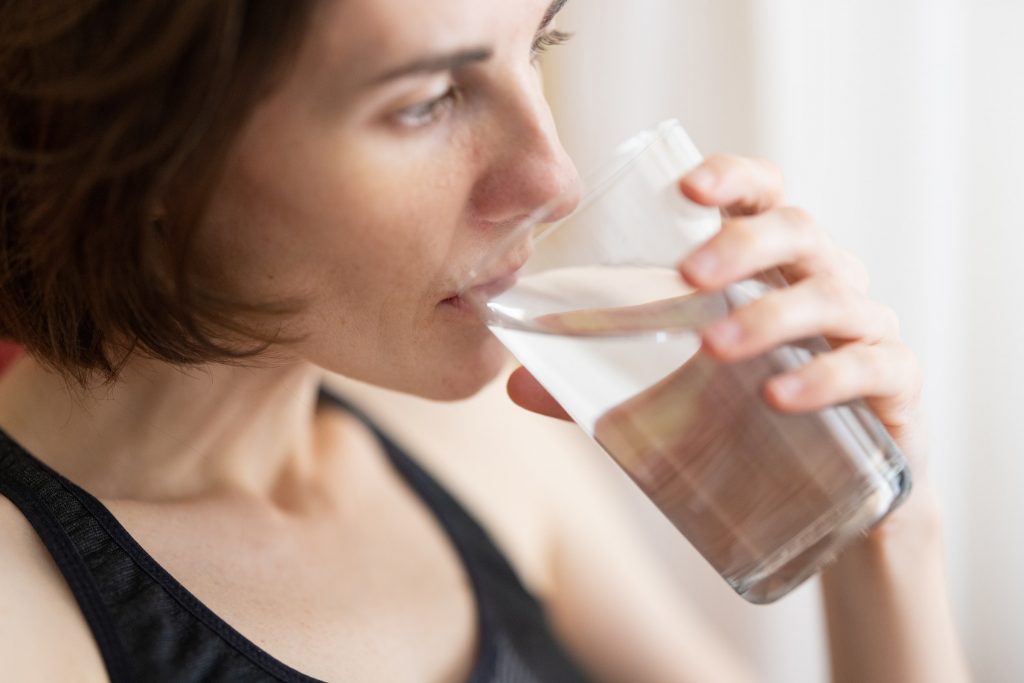It’s been a hot, dry summer in Minnesota and across much of the country. Whether you’re exercising, playing or dining outdoors, or just sitting in the sun, it’s easy to get dehydrated without even knowing it. But staying well-hydrated is important for your heart and health.

Here are a few tips from the American Heart Association on maintaining good hydration, no matter the weather.
The Importance of Good Hydration
When your body is sufficiently hydrated, the heart is more easily able to pump blood. Essentially, your heart doesn’t have to work as hard. Your muscles are also able to work more efficiently.
Signs and Symptoms of Dehydration
The amount of water a person needs varies based on climate, clothing, body composition, medical conditions, and activity level. Therefore, it can be difficult to tell when you’re dehydrated until you begin suffering adverse effects.
To catch dehydration before it causes harm, pay attention to your thirst level. If you’re thirsty, you’re already dehydrated. The color of your urine is a good indicator as well. If it’s dark, that’s a sign to drink more fluids.
How to Stay Hydrated
- Drink water before and during exercise or time outside, not just when you’re done.
- Drink electrolyte drinks during high-intensity activities (but watch out for added sugar)
- Eat foods containing water, such as fruit
- Avoid fruit juices or soda, as they can upset the stomach if you’re dehydrated
- Avoid coffee and other drinks containing caffeine, as they can dehydrate you further
What’s the best way to protect the hearts of those you love? By registering for a CPR course!
HeartCert CPR is your trusted training partner for CPR, ACLS, PALS, EMR and First Aid in the Twin Cities and throughout Minnesota.
HeartCert CPR courses include CPR/AED/First Aid and CPR/AED, Basic Life Support (BLS), Advanced Cardiac Life Support (ACLS), Pediatric Advanced Life Support (PALS), and Certified Nursing Assistant training. Courses and certifications from both the American Heart Association and American Red Cross are available.
We are now offering virtual CPR courses and certifications, as well as safe in-person courses at all locations and our headquarters, HeartCert CPR Eagan.

